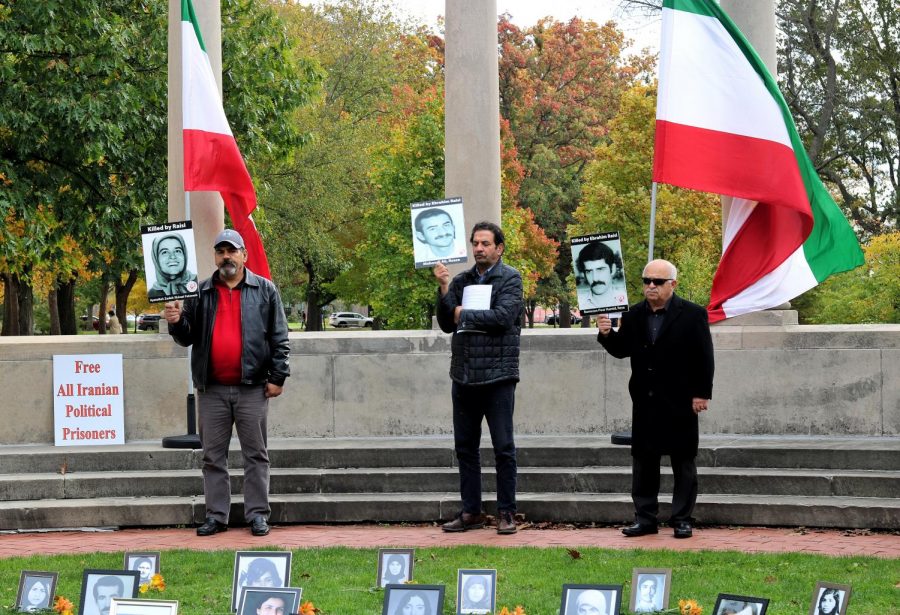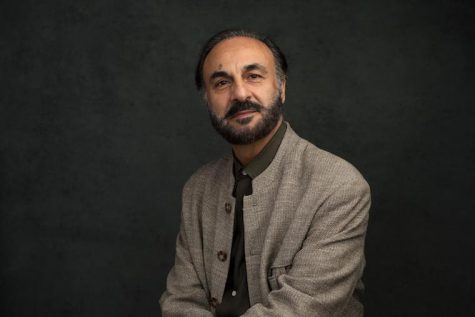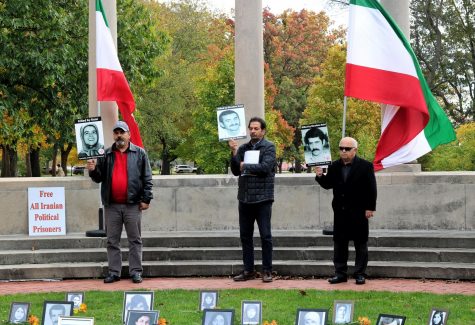The Allegations
A year ago, on Oct. 8, 2020, family members of the victims and former political prisoners wrote a letter to President Carmen Twillie Ambar leveling accusations against Mahallati for being complicit in covering up mass killings in Iran in 1988. The letter called for a review of the process behind the decision to hire and give tenure to Mahallati, his removal from office, and an apology from the College to families of the victims “for hiring and promoting a per- son who … was involved in hiding crimes against humanity perpetrated against them.”
The next day, on Oct. 9, 2020, Mahallati submitted a letter to the Review responding to the allegations.
“I categorically deny any knowledge and therefore responsibility regarding mass executions in Iran when I was serving at the United Nations,” Mahallati wrote. “I was in New York the entire summer of 1988, focusing on peace- making between Iran and Iraq, and I did not receive any briefing regarding executions. There was not a single communication from Tehran to Iran’s U.N. embassy informing Iranian diplomats of those incidents.”
However, Director of Iranian Refugees Alliance Inc. Deljou Abadi wrote to President Ambar arguing that Mahalla- ti’s claim that he did not know about the executions at the time was not substantiated.
“The allegations that Mr. Mahallati must answer are the following: that he took a key role in obstructing the U.N.’s investigation of these executions after they took place; that to this end he fed the U.N. misleading information; that he likely would have known of the executions by November or December 1988, as both the families of the executed and key Tehran officials were aware of the executions by that time; that later, when Mr. Mahallati acknowledged the executions in Feb. 1989, he continued to fend off a U.N. investigation by spreading untruthful and insulting characterizations of the victims,” Abadi’s letter reads.
In 2021, Oberlin College hired an unnamed third-party to investigate allegations against Mahallati. On Oct. 12 of this year, Director of Media Relations Scott Wargo shared a press release with the College’s conclusions from the investigation.
“After consulting a number of sources, and evaluating the public record, the College could find no evidence to corroborate the allegations against Professor Mahallati, including that he had specific knowledge of the murders taking place in Iran,” the College’s press release reads.
After activists’ demands for information into the details of the College’s investigation were not addressed, protest- ers led by Iranian human rights activist Lawdan Bazargan gathered at the Tappan Square Memorial Arch on Nov. 2. The protesters object to the College’s continued employment of Mahallati and lack of transparency around the investigation.
On Nov. 1, the College released a fact sheet on Mahallati and the situation to the Review. The sheet includes back- ground on Mahallati’s time as a professor, statements from Mahallati and his lawyer, and the College’s response. The College responds to the allegations of antisemitic behavior and about the executions of People’s Mujahedin of Iran members. It does not address the allegations about the Baha’is or details about the investigation.


